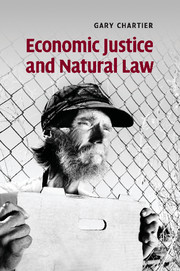1 - Foundations: property
Published online by Cambridge University Press: 18 December 2009
Summary
Property systems are constrained but contingent products of communal norms, rules, and institutions. Law, convention, and custom determine what does and does not count as property and shape the transactions in which people acquire and dispose of property. While practical reason can and should constrain property-related rules, there is still substantial latitude for different communities to craft morally appropriate structures and practices.
In Part I, I elaborate on the idea that a community's property system is contingent, rooted in communal norms, rules, and institutions, and that it is designed to benefit the community and reasonable to the extent that it does so. In Part II, I suggest that a range of underlying rationales serve as touchstones for a just property system: autonomy, compensation, generosity, productivity, reliability, stewardship, and identity. In Part III, I emphasize that, while a property system is contingent, the requirements of practical reason and the underlying rationales for property rights constrain the property rules a community can reasonably adopt, while leaving communities free to adopt a variety of arrangements in light of their circumstances and priorities. I offer an overview of my arguments in Part IV.
Property regimes as contingent but constrained social strategies
While some system of property rights will be necessary in most circumstances, this is not because any single system is an inescapable requirement of justice.
- Type
- Chapter
- Information
- Economic Justice and Natural Law , pp. 32 - 46Publisher: Cambridge University PressPrint publication year: 2009



